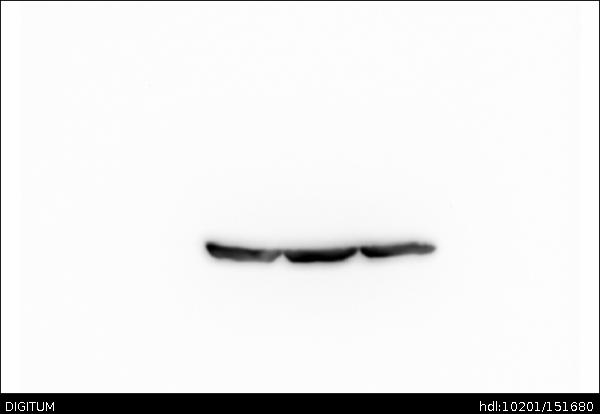Por favor, use este identificador para citar o enlazar este ítem:
http://hdl.handle.net/10201/151680 Twittear
Twittear


Registro completo de metadatos
| Campo DC | Valor | Lengua/Idioma |
|---|---|---|
| dc.contributor.author | Rodríguez López, José Neptuno | - |
| dc.contributor.author | Sánchez del Campo, Luis | - |
| dc.contributor.author | Martí Díaz, Román | - |
| dc.contributor.author | Montenegro, María F | - |
| dc.contributor.author | Hernández Caselles, Trinidad | - |
| dc.contributor.author | Piñero Madrona, Antonio | - |
| dc.contributor.author | Cabezas Herrera, Juan | - |
| dc.date.accessioned | 2025-03-12T11:18:25Z | - |
| dc.date.available | 2025-03-12T11:18:25Z | - |
| dc.date.created | 2025 | - |
| dc.identifier.uri | http://hdl.handle.net/10201/151680 | - |
| dc.description.abstract | Background: Today, cell therapies are constantly evolving and providing new options for cancer patients. These therapies are mostly based on the inoculation of immune cells extracted from a person's own tumor; however, some studies using whole tumor cell-based vaccines are approaching the level of maturity required for clinical use. Although these latest therapies will have to be developed further and adapted to overcome many ethical barriers, there is no doubt that therapeutic cancer vaccines are the next frontier of immunotherapy. Methods: Ionizing radiation and CD47 knockout via CRISPR-Cas9 genome editing were used to optimize the macrophage-mediated phagocytosis of breast cancer cells. These cells were subsequently used in several mouse models to determine their potential as novel whole-cell-based vaccines to drive antitumor immunity. To improve the recognition of tumor cells by activated immune cells, this cellular therapy was combined with anti-PD-1 antibody treatments. Results: Here, we showed that irradiation of 4T1 breast cancer cells increases their immunogenicity and, when injected into the blood of immunocompetent mice, elicits a complete antitumor immune response mediated, in part, by the adaptive immune system. Next, to improve the macrophage-mediated phagocytosis of breast cancer cells, we knocked out CD47 in 4T1 cells. When injected in the bloodstream, irradiated CD47 knockout cells activated both the adaptive and the innate immune systems. Therefore, we used these ex vivo engineered cells as a whole tumor cell-based vaccine to treat breast tumors in immunocompetent mice. A better response was obtained when these cells were combined with an anti-PD-1 antibody. Conclusion: These results suggest that tumor cells obtained from surgical samples of a breast cancer patient could be engineered ex vivo and used as a novel cell therapy to drive antitumor immunity. | es |
| dc.format | text/plain | es |
| dc.format | image/example | es |
| dc.format | image/example | es |
| dc.format | image/tiff | es |
| dc.language | eng | es |
| dc.relation | Ministerio de Ciencia, Innovación y Universidades (MICIU) [Projects PID2023-149281OB-I00 & CPP2023-010510 (MICIU/AEI/10.13039/ 501100011033 & FEDER, UE). Fundación Séneca – Agencia de Ciencia y Tecnología de la Región de Murcia [FSRM/10.13039/100007801(22544/PI/24). Spain]. Fundación Séneca. Región de Murcia (Spain) (21407/FPI/20). | es |
| dc.rights | info:eu-repo/semantics/openAccess | es |
| dc.rights.uri | http://creativecommons.org/licenses/by-nc-nd/4.0/ | * |
| dc.subject | Breast cancer | es |
| dc.subject | Whole tumor cell-based vaccines | es |
| dc.subject | CD47 | es |
| dc.subject | Lonizing radiation | es |
| dc.subject | Anti-tumor immunity | es |
| dc.title | Ex vivo engineering of phagocytic signals in breast cancer cells for a whole tumor cell-based vaccine | es |
| dc.type | info:eu-repo/semantics/dataset | es |
| dc.relation.isrequiredby | http://hdl.handle.net/10201/156952 | - |
| dc.contributor.department | Bioquímica y Biología Molecuar A | - |
| dc.contributor.department | IMIB Pascual Parrilla | - |
| Aparece en las colecciones: | Datos de investigación | |
Ficheros en este ítem:
| Fichero | Descripción | Tamaño | Formato | |
|---|---|---|---|---|
| Fig_S4_Actin[1].jpg | 131,66 kB | JPEG |  Visualizar/Abrir | |
| Fig_S4_CD47[1].jpg | 143,25 kB | JPEG |  Visualizar/Abrir | |
| Figure_7a_&_7b_Actin[1].jpg | 157,15 kB | JPEG |  Visualizar/Abrir | |
| Figure_7a_&_7b_PD-L1[1].jpg | 236,69 kB | JPEG |  Visualizar/Abrir | |
| ChemiDoc PD-L1 Figures 7a & 7b.scn | 711,07 kB | Unknown | Visualizar/Abrir | |
| ChemiDoc Actin Figures 7a & 7b.scn | 711,07 kB | Unknown | Visualizar/Abrir | |
| ChemiDoc Actin Fig_S4.scn | 711,07 kB | Unknown | Visualizar/Abrir | |
| ChemiDoc CD47 Fig_S4.scn | 711,08 kB | Unknown | Visualizar/Abrir | |
| Sancampo154(T1-G1-G1-F)_14-01-36 WT.ab1 | 291,64 kB | Unknown | Visualizar/Abrir | |
| Sancampo158(P12-1-G1-F)_13-57-39 KO CD47.ab1 | 307,62 kB | Unknown | Visualizar/Abrir | |
| Readme_BMC Cancer.txt | 4,16 kB | Text | Visualizar/Abrir |
Este ítem está sujeto a una licencia Creative Commons Licencia Creative Commons


